Lux Æterna by Todd Mason March, 2024
Download Score Lux Æterna
Listen to YouTube recording with the Brno Philharmonic
I’ve always loved the great Requiems — the Mozart, Verdi, Berloiz and others.They are almost beyond mere
For the devout, this work can be viewed in traditional religious terms. For others, this Requiem can be seen as allegory — a kind of poetic interpretation of loss and remembrance, and the everlasting power of love. I want this Eternal Light to represent the candle we all keep lit in our souls for those that left us too early, and others to whom we owe so much. And to remind listeners that they’re not alone — that others understand their grief. And, most important, that the departed are not really gone, but perhaps transformed, as the poet Clair Harner so beautifully wrote in her famous poem, “Immortality.” And also Mark Twain’s famous poem “Warm Summer Sun.” “I am the thousand winds that blow I am the diamond glints in snow I am the sunlight on ripened grain, I am the gentle, autumn rain. Do not stand by my grave, and cry- I am not there, I did not die.” -Clair Harner.
“Warm summer sun, Shine kindly here, Warm southern wind, Blow saftly here. Green sod above, Lie light, lie light. Good night, good night” -Mark Twain
I was lucky enough to have this piece recently recorded in the beautiful Czech city of Brno, by the Brno Philharmonic and Are Brunensis Choir. This piece is roughly in 3 sections, though it plays in one continuous 22-minute movement. The opening begins with an almost atonal choral texture quickly giving way to a more traditional orchestral harmonic language albeit with a few stacked harmonies and polytonal accents. There are waves of energy that come and go with a generally solemn tone building to a highly charged Kyrie eleison (“Lord have mercy”) with full brass and contrapuntal energy. As this fades, we enter the first of the heavenly duets, signifying eternal light, between alto and soprano soloists, over the simplest of harmonic progressions. The full chorus, echoing the soloists, enters with ever building lines followed by a robust and rich orchestral response. The middle section emerges out of the mist with long held lines and denser, more eerie, harmonies. The opening motive of the simple rising minor third reemerges in myriad ways here as the chorus develops this section with thinner orchestral accompaniment, but great power. The closing section reprises much of the opening material but with a bit more complexity closing with the 2nd, almost hymnal, duet before the harp leads us to the closing chords and visions of a heavenly light. _______
Mason's compositions have been played by the Juilliard Orchestra, The Sofia Philharmonic, the Budapest Scoring Orchestra, the Azusa Pacific Symphony, The Lyris Quartet, The Angeles Quartet, The Argus Quartet, The Debussy Trio, The Los Angeles Wind Quintet, the SAKURA cello quintet, The Alex Iles Brass Quintet, The Saguaro Piano Trio, The Vieness Piano Duo, and many leading members of the LA Opera Orchestra, Los Angeles Philharmonic. Mason’s music has been performed at the Lancaster Summer Arts Festival, the Astoria Music Festival (where he was Composer in Residence for 2 years), the Laguna Beach Arts Festival, Carlsbad Music Festival, Piano Spheres, Mount Wilson Concerts in the Dome, Chamber Music Palisades, Sunset ChamberFest (Mason was Composer in Residence 2019), at USC, UCLA, and by many other prominent chamber groups. Mason offers a popular chamber music series in his West L.A. home, showcasing leading ensembles and premiering new works.. |
||
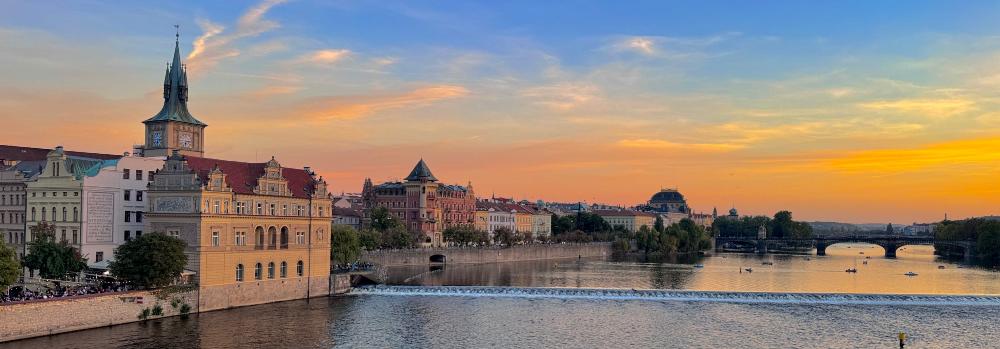
COMPOSER
Lux Æterna
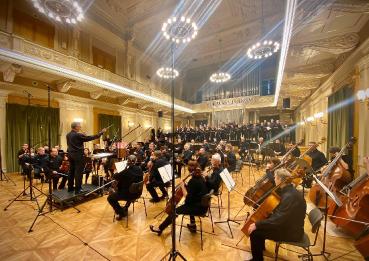 music in their beauty and spirituality. And they give us permission: permission to remember and grieve. As a composer, I’ve always been moved by the immense power of a great choir with full orchestra but as I thought about writing my own choral work, in the Requiem tradition, I also wanted to create a new kind of interpretation. So, while my work uses much of the traditional Latin requiem text we are so used to and, crucially, that choirs around the world are so used to singing, I decided to forgo the Dies Irae text, for example, which literally means “Days of Wrath” where the saved will be delivered and the unsaved cast into eternal flames etc. And…rather than call this work Requiem, I chose the title Lux Æterna, also within the traditional text, which means “Eternal Light.” No judgement is necessary. Just eternal light and rest for those who already suffered enough in their mortality.
music in their beauty and spirituality. And they give us permission: permission to remember and grieve. As a composer, I’ve always been moved by the immense power of a great choir with full orchestra but as I thought about writing my own choral work, in the Requiem tradition, I also wanted to create a new kind of interpretation. So, while my work uses much of the traditional Latin requiem text we are so used to and, crucially, that choirs around the world are so used to singing, I decided to forgo the Dies Irae text, for example, which literally means “Days of Wrath” where the saved will be delivered and the unsaved cast into eternal flames etc. And…rather than call this work Requiem, I chose the title Lux Æterna, also within the traditional text, which means “Eternal Light.” No judgement is necessary. Just eternal light and rest for those who already suffered enough in their mortality. 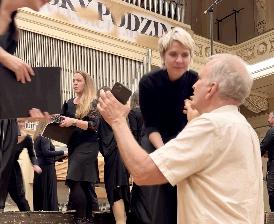 eleison, which simply means “Lord have mercy” — mercy on the departed. But I also see this as having mercy on those left behind — those that endured great burdens and sorrows.
eleison, which simply means “Lord have mercy” — mercy on the departed. But I also see this as having mercy on those left behind — those that endured great burdens and sorrows.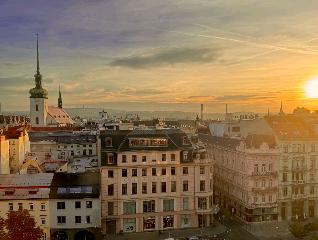 These are superb musicians with a long tradition of classical music being a cherished part of their cultural identity. The ornate philharmonic hall, where we recorded, was used by such composers as Leos Janacek — one of my musical heroes. I felt honored to be in that magnificent room, feeling their shadows, hearing this new work come to life.
These are superb musicians with a long tradition of classical music being a cherished part of their cultural identity. The ornate philharmonic hall, where we recorded, was used by such composers as Leos Janacek — one of my musical heroes. I felt honored to be in that magnificent room, feeling their shadows, hearing this new work come to life.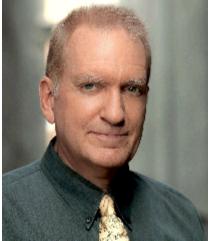 Todd Mason, a Los Angeles native, received his master's in Composition from The Juilliard School, studying with David Diamond, Peter Mennin, Roger Sessions, and Elliott Carter. Mason received the Rodgers & Hammerstein Juilliard Scholarship, Juilliard's Marion Freschl Award for a composition for voice and orchestra, first place in the National Federation of Music Clubs composition contest, First Place in the Lancaster Summer Arts Festival, and the ASCAP Young Composers award, presented by Aaron Copland.
Todd Mason, a Los Angeles native, received his master's in Composition from The Juilliard School, studying with David Diamond, Peter Mennin, Roger Sessions, and Elliott Carter. Mason received the Rodgers & Hammerstein Juilliard Scholarship, Juilliard's Marion Freschl Award for a composition for voice and orchestra, first place in the National Federation of Music Clubs composition contest, First Place in the Lancaster Summer Arts Festival, and the ASCAP Young Composers award, presented by Aaron Copland.